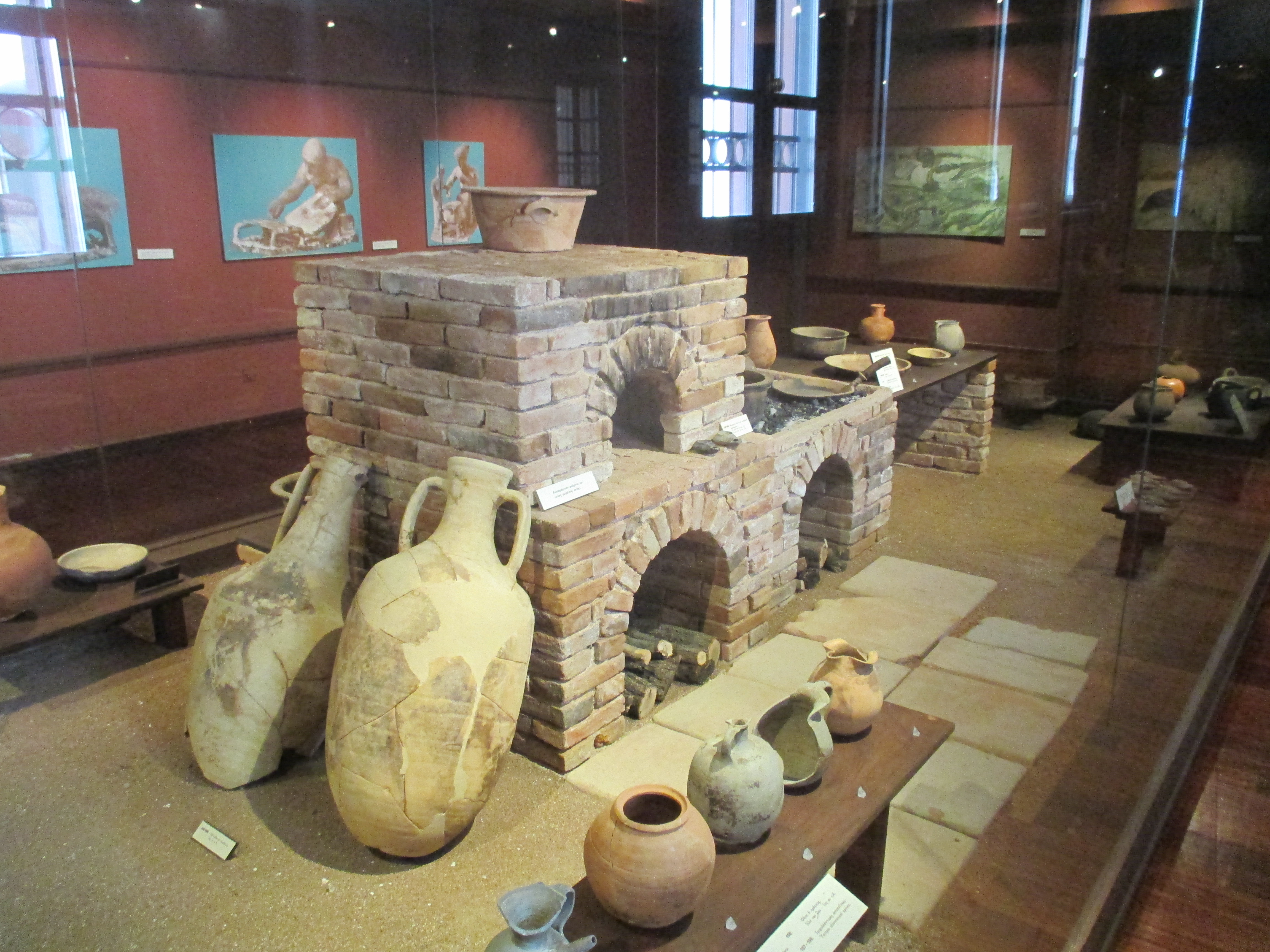|
Archaeological Museum Of Mytilene
The Archaeological Museum of Mytilene is a museum in Lesbos in Greece. Initially the Museum was housed in a building erected by the American Classic Studies School in 1935. Due to geological problems, the stability of the building was damaged and, in 1965, the museum's collection was partly moved to the Bournazos family mansion, originally built in 1912, which was acquired by the Ministry of Culture in the same year. However, this building had to be renovated as well, and it wasn't until 1991 that the Museum took its present form and was officially inaugurated. The collection includes pieces from the late Neolithic Age until the late Roman Period. External linkswww.greeka.com [...More Info...] [...Related Items...] OR: [Wikipedia] [Google] [Baidu] |
Archaeological Museum Of Mytilene 01
Archaeology or archeology is the scientific study of human activity through the recovery and analysis of material culture. The archaeological record consists of artifacts, architecture, biofacts or ecofacts, sites, and cultural landscapes. Archaeology can be considered both a social science and a branch of the humanities. It is usually considered an independent academic discipline, but may also be classified as part of anthropology (in North America – the four-field approach), history or geography. Archaeologists study human prehistory and history, from the development of the first stone tools at Lomekwi in East Africa 3.3 million years ago up until recent decades. Archaeology is distinct from palaeontology, which is the study of fossil remains. Archaeology is particularly important for learning about prehistoric societies, for which, by definition, there are no written records. Prehistory includes over 99% of the human past, from the Paleolithic until the advent of ... [...More Info...] [...Related Items...] OR: [Wikipedia] [Google] [Baidu] |
Museum
A museum ( ; plural museums or, rarely, musea) is a building or institution that cares for and displays a collection of artifacts and other objects of artistic, cultural, historical, or scientific importance. Many public museums make these items available for public viewing through exhibits that may be permanent or temporary. The largest museums are located in major cities throughout the world, while thousands of local museums exist in smaller cities, towns, and rural areas. Museums have varying aims, ranging from the conservation and documentation of their collection, serving researchers and specialists, to catering to the general public. The goal of serving researchers is not only scientific, but intended to serve the general public. There are many types of museums, including art museums, natural history museums, science museums, war museums, and children's museums. According to the International Council of Museums (ICOM), there are more than 55,000 museums in 202 countrie ... [...More Info...] [...Related Items...] OR: [Wikipedia] [Google] [Baidu] |
Lesbos
Lesbos or Lesvos ( el, Λέσβος, Lésvos ) is a Greek island located in the northeastern Aegean Sea. It has an area of with approximately of coastline, making it the third largest island in Greece. It is separated from Anatolia, Asia Minor by the narrow Mytilini Strait. On the southeastern coast lies the island's capital and largest city, Mytilene, whose name is also used as a moniker for the island. The regional units of Greece, regional unit of Lesbos, with the seat in Mytilene, comprises the islands of Lesbos, Chios, Ikaria, Lemnos, and Samos. Mytilene is also the capital of the larger North Aegean region. The population of the island is 83,068, a third of whom live in the capital, while the remainder is distributed in small towns and villages. The largest are Plomari, Kalloni, the Gera Villages, Agiassos, Eresos, and Molyvos (the ancient Mythimna). According to later Greek writers, Mytilene was founded in the 11th century BC by the family Penthilidae, who arrived from T ... [...More Info...] [...Related Items...] OR: [Wikipedia] [Google] [Baidu] |
Greece
Greece,, or , romanized: ', officially the Hellenic Republic, is a country in Southeast Europe. It is situated on the southern tip of the Balkans, and is located at the crossroads of Europe, Asia, and Africa. Greece shares land borders with Albania to the northwest, North Macedonia and Bulgaria to the north, and Turkey to the northeast. The Aegean Sea lies to the east of the Geography of Greece, mainland, the Ionian Sea to the west, and the Sea of Crete and the Mediterranean Sea to the south. Greece has the longest coastline on the Mediterranean Basin, featuring List of islands of Greece, thousands of islands. The country consists of nine Geographic regions of Greece, traditional geographic regions, and has a population of approximately 10.4 million. Athens is the nation's capital and List of cities and towns in Greece, largest city, followed by Thessaloniki and Patras. Greece is considered the cradle of Western culture, Western civilization, being the birthplace of Athenian ... [...More Info...] [...Related Items...] OR: [Wikipedia] [Google] [Baidu] |
Archaeological Museums In The North Aegean
Archaeology or archeology is the scientific study of human activity through the recovery and analysis of material culture. The archaeological record consists of artifacts, architecture, biofacts or ecofacts, sites, and cultural landscapes. Archaeology can be considered both a social science and a branch of the humanities. It is usually considered an independent academic discipline, but may also be classified as part of anthropology (in North America – the four-field approach), history or geography. Archaeologists study human prehistory and history, from the development of the first stone tools at Lomekwi in East Africa 3.3 million years ago up until recent decades. Archaeology is distinct from palaeontology, which is the study of fossil remains. Archaeology is particularly important for learning about prehistoric societies, for which, by definition, there are no written records. Prehistory includes over 99% of the human past, from the Paleolithic until the advent of ... [...More Info...] [...Related Items...] OR: [Wikipedia] [Google] [Baidu] |

.jpg)
